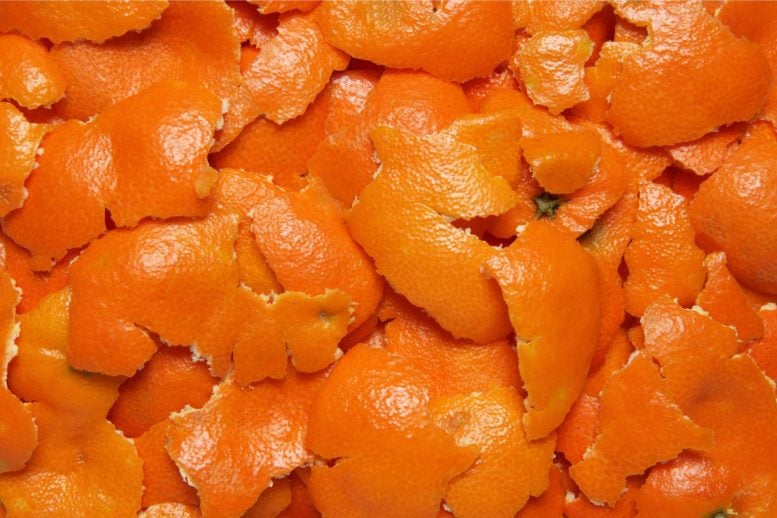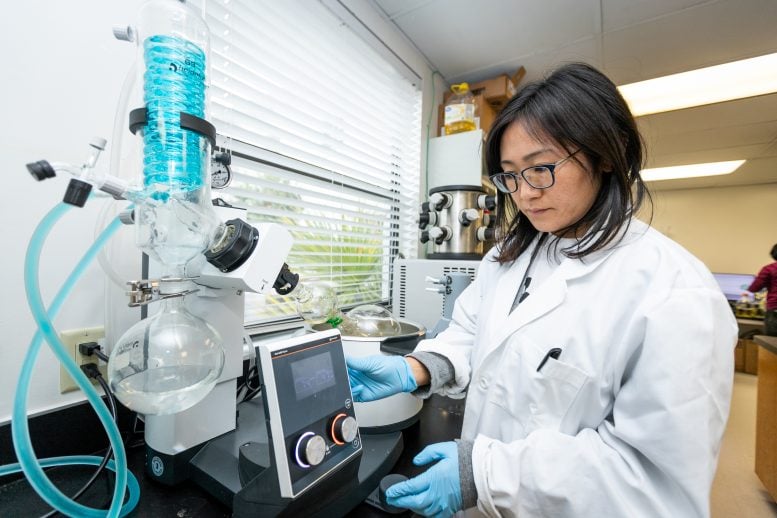
Orange peels may significantly benefit cardiovascular health, according to new research from the University of Florida. The study revealed that extracts from orange peels, which are typically discarded as waste, can inhibit the production of harmful chemicals linked to heart disease. These findings highlight the potential of repurposing orange peels into health-promoting ingredients and developing functional foods to improve heart health.
University of Florida research reveals that orange peel extracts may significantly lower cardiovascular disease risk, offering a promising use for this common agricultural byproduct.
New research led by the University of Florida suggests that orange peels could hold a key to better cardiovascular health
According to the Centers for Disease Control and Prevention (CDC), heart disease is the leading cause of death for men, women, and people across most racial and ethnic groups.
Recent research has shown that some gut bacteria help develop cardiovascular disease. When they feed on certain nutrients during digestion, gut bacteria produce trimethylamine N-oxide (TMAO). Levels of TMAO can help predict future cardiovascular disease, according to researchers at the Cleveland Clinic. With help from a $500,000 USDA grant, Yu Wang and her team investigated the potential of orange peel extracts — rich in beneficial phytochemicals — to reduce TMAO and trimethylamine (TMA) production. Scientists tested two types of extracts: a polar fraction and a non-polar fraction.
Extraction Process and Findings
To get the polar fractions, scientists used polar and non-polar solvents to extract the orange peel, Wang said.
“If you imagine your salad dressing, anything in the water or vinegar part is the polar fraction; anything in the oil away from water is the non-polar fraction,” Wang said. “The solvents we used were not exactly like water and oil, but they possess similar polarity.”
Results from the study showed that the orange peel non-polar fraction extract effectively inhibited the production of harmful chemicals. Researchers also identified a compound called feruloylputrescine in the orange peel polar fraction extract that also significantly inhibits the enzyme responsible for TMA production.
“This is a novel finding that highlights the previously unrecognized health potential of feruloylputrescine in reducing the risk of cardiovascular disease,” said Wang, a UF/IFAS associate professor of food science and human nutrition.
Potential Applications and Future Directions
The orange peel finding is significant because 5 million tons of orange peels are produced each year in orange juice production nationwide. Nearly 95% of Florida oranges are used for juice. About half of the peels go to feed cattle. The rest goes to waste. But the Food and Drug Administration considers natural orange peel extracts safe for human consumption. So, Wang hopes to put the peels to better use.
“These findings suggest that orange peels, often discarded as waste in the citrus industry, can be repurposed into valuable health-promoting ingredients, such as diet supplements or food ingredients,” said Wang, a faculty member at the UF/IFAS Citrus Research and Education Center. “Our research paves the way for developing functional foods enriched with these bioactive compounds, providing new therapeutic strategies for heart health.”
Reference: “Discovery of a Novel Bioactive Compound in Orange Peel Polar Fraction on the Inhibition of Trimethylamine and Trimethylamine N-Oxide through Metabolomics Approaches and In Vitro and In Vivo Assays: Feruloylputrescine Inhibits Trimethylamine via Suppressing cntA/B Enzyme” by Hana Lee, Gar Yee Koh, Hanna Lee, Priscila Alves, Wallace Yokoyama and Yu Wang, 2 April 2024, Journal of Agricultural and Food Chemistry.
DOI: 10.1021/acs.jafc.3c09005










“Ha. There is no way you can get people to eat orange peels.” “Yeah I can.” “No way.” “You don’t think so, huh? Lets make a bet.” “Ok, I’ll take that bet.” “Ok, ur on!”.
Orange marmalade, the traditional British spread on one’s breakfast toast. Based on orange peel.
Candied orange peels wit or without chocolate is delicious! My Grandmother used to make them. Getting the sugar to crystallize properly on a humid day was the biggest problem, not finding willing mouths to consume them!